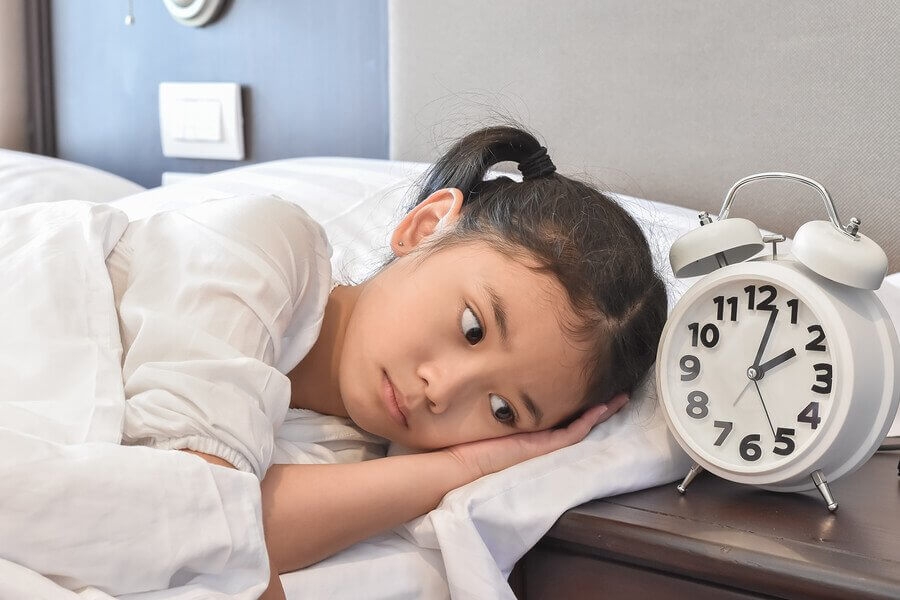My Child Is Afraid to Sleep Away from Home

It’s very common for young children to be afraid to sleep away from home. This fear begins around two years old and can last until children are six or eight – just like fear of the dark or of being separated from their parents, which are also very common fears.
This is a stage when children are very attached to their parents and constantly seek the security they can only get from them or close family members. This is why sleeping away from home is scary.
Children are very used to their habits and environment. They’re used to sleeping in their own rooms, with the same bedtime routines. As a result, when you change their routines and children have to sleep in a different place that isn’t their own home, they may express resistance.
What can you do if your child is afraid to sleep away from home?
To make sleeping away from home a fun adventure for kids, first of all, get them to express their fears and ask you questions. Answer each one calmly.
Make sure your children are aware of all the things they can do while they’re on their own and try to make their excitement stronger than their fear of sleeping away from home. Remember to focus on their favorite activities.

Having easy communication with your child is important. Don’t think that the problem will just resolve itself. Take control of the situation and invite your children to help them get ready to sleep away from home.
Don’t let your child avoid the situation. Stay firm and don’t let them convince you. Be patient. Don’t pressure them, or you’ll create even more resistance.
Avoid consoling your children. Telling your children that everything will be okay will cause them to lose trust in your opinion. Don’t tell them exactly what they should do, either. Ask your children to make a plan to make new friends and do fun activities.
The first night away from home: how to guide your children?
It’s a good idea to go with your children to the friend’s house where they’ll be sleeping over. This will help them transition and not be afraid.
Offer your children choices so they know they’re not alone. Let them know that if they don’t feel well or have any problems, they can call you through the friend’s parents. Or they can use their own phone, if they have one.
You should know that there is no ideal age for a child to start sleeping away from home. Children will decide for themselves. Your children will ask to go camping to sleep at a friend’s house, but they should only go if they’re self-sufficient enough at home.
To help children spend their first night away from home, reinforce their conditioning, make sure they feel safe, and help them face their fears so they can overcome them. That’s the only way they’ll feel safe and ready to sleep away from home.
And if they cry?
Although they love the idea of it, sometimes sleeping away from home doesn’t go well. It’s important not to exaggerate your reaction and to control your worry. If you don’t, your children will notice that you’re nervous and they’ll feel less safe.
If your children won’t sop crying, that’s a signal they aren’t ready for this experience yet. Children take their own time to adapt to new situations. Avoid putting them through something that will feel traumatic, otherwise they won’t get over their fear of sleeping away from home.
This means your children need to detach from you gradually. Wait until your children ask to sleep away from home, or at least don’t put up much resistance.
This experience will be beneficial for them and help them develop their autonomy and social relationships. They’ll learn to be more tolerant and to share, as well as be better team players. These are invaluable values for their lives and futures.
It’s very common for young children to be afraid to sleep away from home. This fear begins around two years old and can last until children are six or eight – just like fear of the dark or of being separated from their parents, which are also very common fears.
This is a stage when children are very attached to their parents and constantly seek the security they can only get from them or close family members. This is why sleeping away from home is scary.
Children are very used to their habits and environment. They’re used to sleeping in their own rooms, with the same bedtime routines. As a result, when you change their routines and children have to sleep in a different place that isn’t their own home, they may express resistance.
What can you do if your child is afraid to sleep away from home?
To make sleeping away from home a fun adventure for kids, first of all, get them to express their fears and ask you questions. Answer each one calmly.
Make sure your children are aware of all the things they can do while they’re on their own and try to make their excitement stronger than their fear of sleeping away from home. Remember to focus on their favorite activities.

Having easy communication with your child is important. Don’t think that the problem will just resolve itself. Take control of the situation and invite your children to help them get ready to sleep away from home.
Don’t let your child avoid the situation. Stay firm and don’t let them convince you. Be patient. Don’t pressure them, or you’ll create even more resistance.
Avoid consoling your children. Telling your children that everything will be okay will cause them to lose trust in your opinion. Don’t tell them exactly what they should do, either. Ask your children to make a plan to make new friends and do fun activities.
The first night away from home: how to guide your children?
It’s a good idea to go with your children to the friend’s house where they’ll be sleeping over. This will help them transition and not be afraid.
Offer your children choices so they know they’re not alone. Let them know that if they don’t feel well or have any problems, they can call you through the friend’s parents. Or they can use their own phone, if they have one.
You should know that there is no ideal age for a child to start sleeping away from home. Children will decide for themselves. Your children will ask to go camping to sleep at a friend’s house, but they should only go if they’re self-sufficient enough at home.
To help children spend their first night away from home, reinforce their conditioning, make sure they feel safe, and help them face their fears so they can overcome them. That’s the only way they’ll feel safe and ready to sleep away from home.
And if they cry?
Although they love the idea of it, sometimes sleeping away from home doesn’t go well. It’s important not to exaggerate your reaction and to control your worry. If you don’t, your children will notice that you’re nervous and they’ll feel less safe.
If your children won’t sop crying, that’s a signal they aren’t ready for this experience yet. Children take their own time to adapt to new situations. Avoid putting them through something that will feel traumatic, otherwise they won’t get over their fear of sleeping away from home.
This means your children need to detach from you gradually. Wait until your children ask to sleep away from home, or at least don’t put up much resistance.
This experience will be beneficial for them and help them develop their autonomy and social relationships. They’ll learn to be more tolerant and to share, as well as be better team players. These are invaluable values for their lives and futures.
All cited sources were thoroughly reviewed by our team to ensure their quality, reliability, currency, and validity. The bibliography of this article was considered reliable and of academic or scientific accuracy.
- Bastida de Miguel, Ana María (2013) Miedos, ansiedades y fobias: Diferencias, normalidad o patología; Fundación Cadah; 28 págs. http://fundacioncadah.org/j289eghfd7511986_uploads/20130110_wXO2Y3NkxjVszUYzFP1q_0.pdf
- Ruiz Sancho, Ana María, Lago Pita B. (2005) Trastornos de ansiedad en la infancia y en la adolescencia. En: AEPap ed. Curso de Actualización Pediatría 2005. Madrid: Exlibris Ediciones; p. 265-280. https://www.aepap.org/sites/default/files/ansiedad_0.pdf
This text is provided for informational purposes only and does not replace consultation with a professional. If in doubt, consult your specialist.









